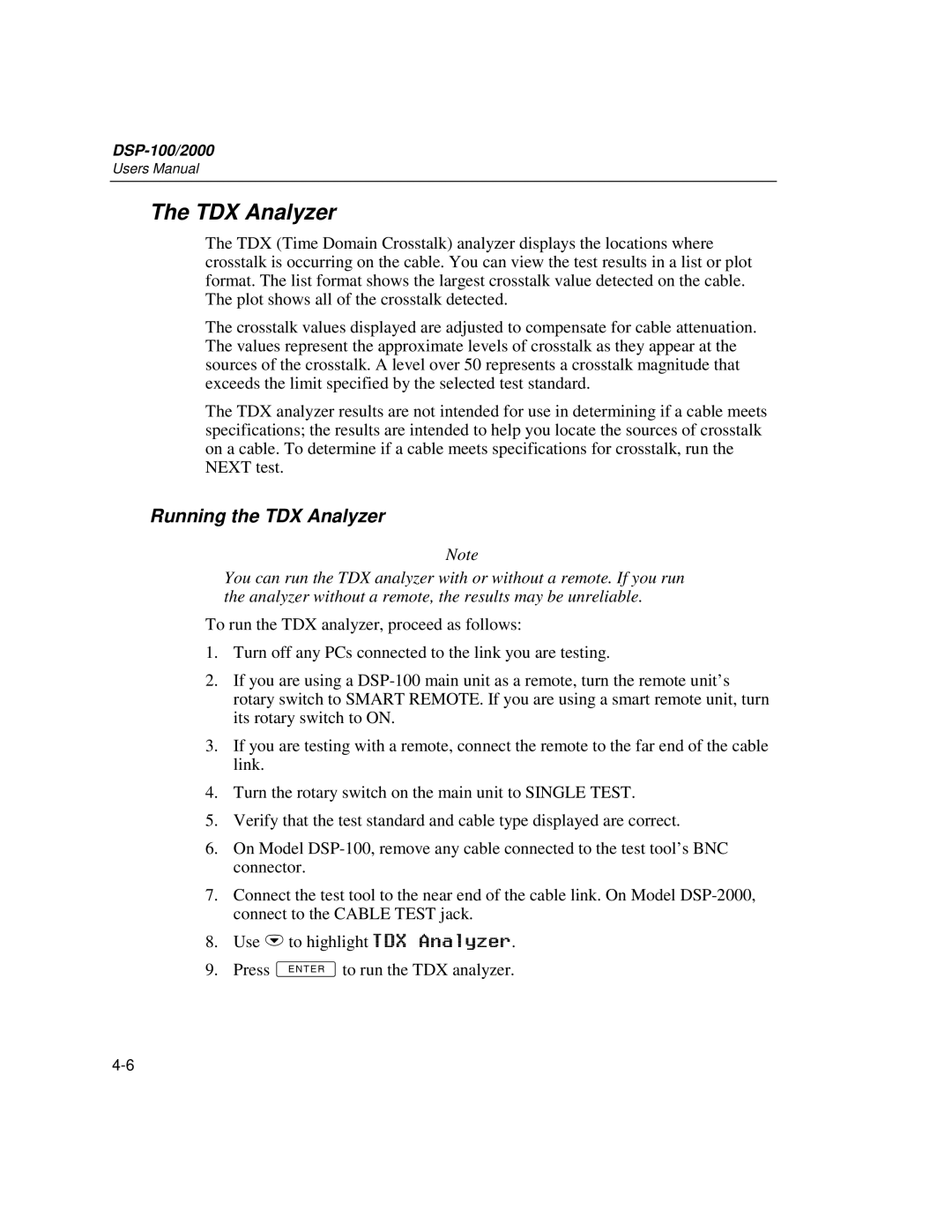DSP-100/2000
Users Manual
The TDX Analyzer
The TDX (Time Domain Crosstalk) analyzer displays the locations where crosstalk is occurring on the cable. You can view the test results in a list or plot format. The list format shows the largest crosstalk value detected on the cable. The plot shows all of the crosstalk detected.
The crosstalk values displayed are adjusted to compensate for cable attenuation. The values represent the approximate levels of crosstalk as they appear at the sources of the crosstalk. A level over 50 represents a crosstalk magnitude that exceeds the limit specified by the selected test standard.
The TDX analyzer results are not intended for use in determining if a cable meets specifications; the results are intended to help you locate the sources of crosstalk on a cable. To determine if a cable meets specifications for crosstalk, run the NEXT test.
Running the TDX Analyzer
Note
You can run the TDX analyzer with or without a remote. If you run the analyzer without a remote, the results may be unreliable.
To run the TDX analyzer, proceed as follows:
1.Turn off any PCs connected to the link you are testing.
2.If you are using a
3.If you are testing with a remote, connect the remote to the far end of the cable link.
4.Turn the rotary switch on the main unit to SINGLE TEST.
5.Verify that the test standard and cable type displayed are correct.
6.On Model
7.Connect the test tool to the near end of the cable link. On Model
8.Use Dto highlight TDX Analyzer.
9.Press Eto run the TDX analyzer.
